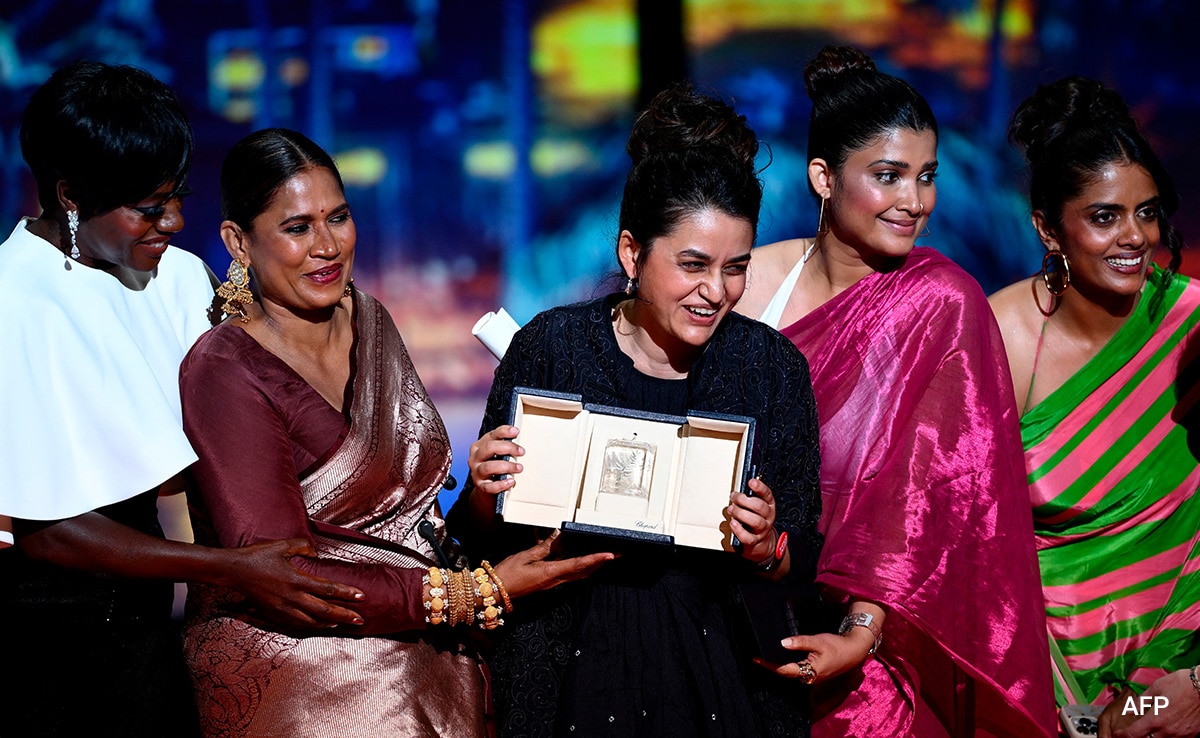The festival’s acknowledgement of Indian artists and films is a source of great pride for the country as it showcases their exceptional artistic vision and the changing face of film. It is a historic accomplishment for Payal Kapadia’s All We Imagine as Light to have won the coveted Grand Prix, the festival’s second-highest honour.
The film’s main category nomination, the first for India in thirty years, signifies a significant advancement for our industry. With its multifaceted viewpoint, Kapadia’s film subverts conventional narratives. The fact that Anasuya Sengupta became the first Indian actor to win the Best Actress prize in the Un Certain Regard category for her work in The Shameless is a prime example of how Indian talent is beginning to be recognized outside of Bollywood.

Source: NDTV
The exceptional creative ability of up-and-coming filmmakers is demonstrated by Chidananda S. Naik’s Sunflowers Were the First Ones to Know, which took home the La Cinef top prize for best short film. Technical recognition was also given to Santosh Sivan, a cinematographer who became the first Asian to win the Pierre Angénieux ExcelLens in Cinematography award.
The Cannes victories attest to the richness and diversity of Indian film, even in the face of international attention being drawn to commercial triumphs like as RRR and Pushpa: The Rise. Interestingly, creative finance techniques including crowdsourcing, foreign co-production, and government incentives allowed these movies to be a commercial success.
Source: Radio India City
These sources of finance were crucial in enabling filmmakers to explore the wider range of Indian culture and creativity and in making genre-bending works come to life. Increasing India’s visibility on the international scene requires consistent funding and promotion of independent cinema.
What do you think about this? Comment below.

